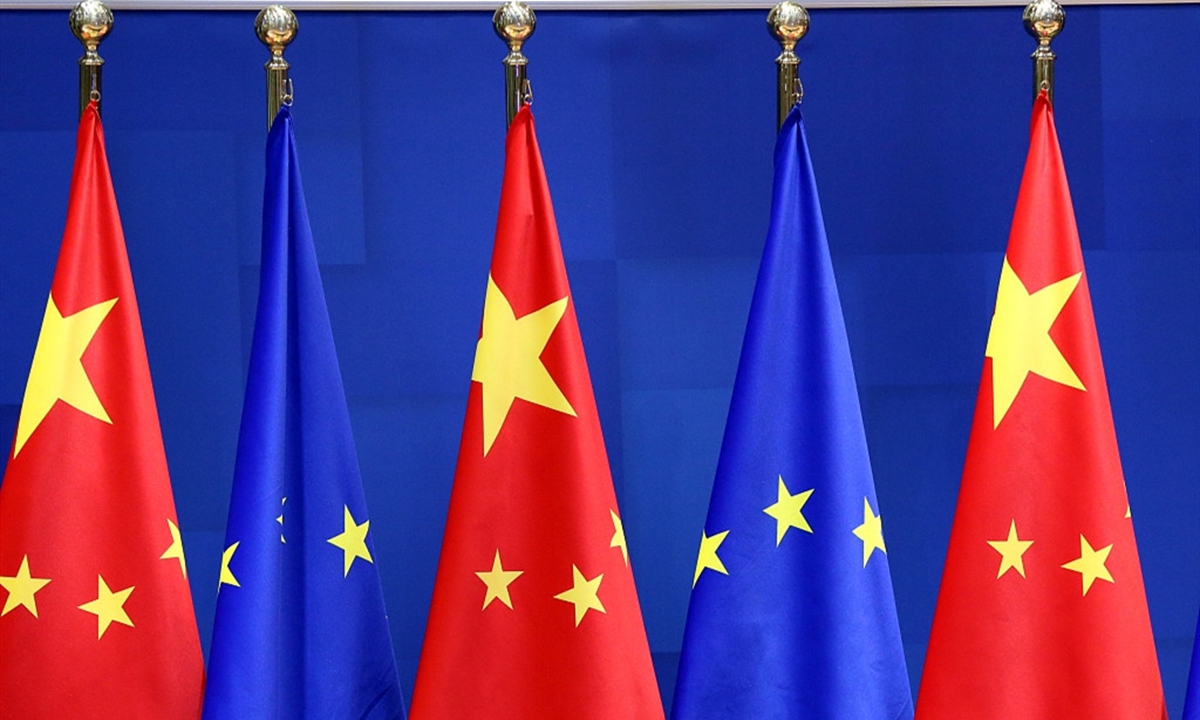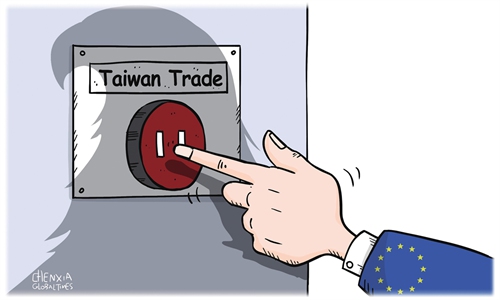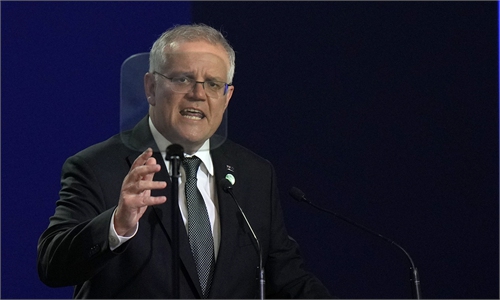After China-US leaders’ meeting, other Western nations may seek similar talks: experts

EU China Photo:Xinhua
After the virtual meeting between Chinese and US leaders that sent relatively positive signals, the US' allies that have pursued certain hostile actions against China might also seek to pursue constructive dialogues with Chinese officials, experts said on Thursday amid signs of such a shift from certain Western countries and regions.
According to a report from the South China Morning Post (SCMP) on Wednesday, the EU has postponed a confidential plan to upgrade its trade ties with the island of Taiwan, which the newspaper described as a "high-balancing act" aimed at re-engaging Beijing after rising tensions in bilateral ties.
EU officials were "shocked" at the pace of decline in China-EU ties over the first few months of this year; and the two sides are also trying to arrange a summit this year as part of re-engagement efforts, according to the SCMP.
The report came one day after the Chinese and US leaders held a virtual summit, during which they discussed strategic, overall and fundamental issues between the two countries. The readouts released by the two sides were both relatively positive.
Following the meeting, certain Australian officials also expressed desire for meetings with Chinese officials, according to media reports.
Praising the China-US leaders' meeting as being "meaningful and significant," Australia's trade minister Dan Tehan said that "that's what Australia wants to be able to do with China itself. We are looking for constructive engagement," Australia's public broadcaster reported.
Tehan, who has before called for talks with Chinese officials without any success, also said that Australia wants to be able to work through differences with China because it values the economic relationship between the countries, the report said.
The signals from the EU and Australia may reflect a certain turn in the attitude of US allies toward China, experts said, as they hoped that the virtual meeting between Chinese and US top leaders could provide an opportunity for others to pursue similar dialogues with China.
Chen Hong, executive director of Asia Pacific Studies Centre under East China Normal University, said that Australia was stuck into a somewhat "awkward" position after the US, which it is following in targeting China, has turned to seek to ease tensions in bilateral ties.
"I think there is a chance that Australia will take the initiative to improve the bilateral relationship with China in the wake of [the leaders' meeting]. But what reaction China would take would depend on whether Australia shows enough political wisdom," Chen told the Global Times.
According to Chen, one thing that Australia could do to ease tensions with China is to welcome China's participation in the Comprehensive and Progressive Agreement for Trans-Pacific Partnership (CPTPP).
Still, Chen stressed that there are many areas of uncertainty in China-Australia relations, and it remains to be seen if Australia could leverage the opportunity of the China-US leaders' meeting to lift China-Australia ties out of the current predicament.
Zhao Junjie, a research fellow at the Chinese Academy of Social Sciences' Institute of European Studies, also said that political relations between China and the EU have hit the lowest level in around a decade, and although the two sides have not yet emerged from such a political chill, signs have appeared for their relations to rebound now that the China-US relations are hopefully on a more positive trajectory.
According to Zhao, economic ties between China and the EU are deeply intertwined, as the bloc depends on the China not only for the markets, but also for assembly plants and raw materials.
"I don't think China and the EU can have any kind of economic decoupling, considering the huge demands they have for each other's economy," he said, adding that it's necessary that the EU would further enhance economic and trade cooperation with China.



